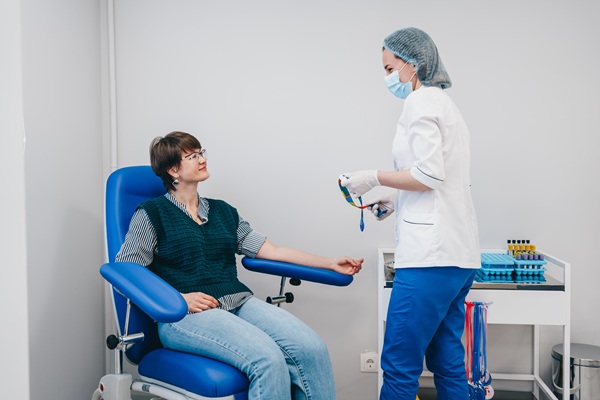Breast Cancer Treatment Options From an Oncologist

Breast cancer is a serious disease that affects millions of women every year. Luckily, there are various breast cancer treatment an oncologist can recommend. Breast cancer treatments depend on the stage and severity of the cancer. This article will discuss each treatment an oncologist may suggest as part of your treatment plan.
Breast cancer treatment options
Lumpectomy
A lumpectomy is a surgical procedure that removes only the tumor and a small amount of tissue from the breast. This procedure is also known as breast-conserving surgery. Oncologists typically recommend a lumpectomy for those with small tumors that have not spread to other parts of the breast or body.
During the lumpectomy, the oncologist will make a small incision in the breast and remove the tumor and surrounding tissue. The oncologist will place the patient under general anesthesia, usually taking only an hour to perform the procedure. After the surgery, patients may experience some pain and discomfort, but this is managed with a pain prescription provided by the oncologist. Our team will also fit patients with a special medical bra or an adhesive bandage to support the breast during healing.
Mastectomy
A mastectomy is a surgical procedure that removes breast tissue. Oncologists recommend this surgery for those with larger tumors or cancer that has spread to other parts of the breast or body. There are several types of mastectomies, including:
- Simple mastectomy: Removes the entire breast but not the lymph nodes
- Modified radical mastectomy: Removes the entire breast tissue and some lymph nodes
- Radical mastectomy: Removes the entire breast, lymph nodes, and chest muscles
During this breast cancer treatment, the oncologist will make an incision in the breast and remove the tissue. The procedure is performed under general anesthesia and will take several hours to complete, unlike a lumpectomy. After the surgery, patients may experience pain and discomfort for weeks to a few months; prescription medication can alleviate these symptoms. The oncologist may also fit them with a special medical bra or adhesive to be worn during the healing process.
Chemotherapy
Chemotherapy is a type of breast cancer treatment that uses drugs to destroy cancer cells. In some cases, it is possible for an oncologist to provide chemotherapy orally or intravenously, typically administered in cycles. Oncologists often use chemotherapy in combination with other treatments, such as surgery or radiation therapy, to help shrink tumors and prevent the spread of cancer.
Chemotherapy works by targeting rapidly dividing cells, which include cancer cells. However, it can also affect healthy cells, which can cause side effects such as hair loss, nausea, and fatigue. The side effects of chemotherapy can vary depending on the individual and the type of chemotherapy drugs used.
Hormonal Therapy
Oncologists may use hormonal therapy for various reasons. However, it is extremely effective as a breast cancer treatment. It blocks the hormones that fuel the growth of certain types of breast cancer. Oncologists typically use hormonal therapy in women with hormone receptor-positive breast cancer, which means the cancer cells have receptors for estrogen and progesterone.
Patients can receive hormonal therapy via injection or orally, usually over several years. The side effects of this breast cancer treatment can include hot flashes, vaginal dryness, and joint pain. Of course, they may vary depending on how each patient’s body reacts to the drugs.
Biological Therapy
Biological therapy, also known as immunotherapy or targeted therapy, is a type of breast cancer treatment that uses the body’s immune system to fight cancer. Like hormonal therapy and chemotherapy, oncologists can administer biological therapy drugs orally or intravenously. It targets specific proteins or cells that are involved in the growth and spread of cancer.
Side effects of biological therapy can vary depending on the individual and the type of drugs the oncologist uses. However, common side effects include fatigue, fever, and chills.
Radiation Therapy
Radiation therapy is a breast cancer treatment that uses high-energy radiation to kill cancer cells. Oncologists can administer radiation therapy externally or internally in daily sessions over several weeks. It works by damaging the DNA of cancer cells, which prevents them from dividing and growing. The side effects of radiation therapy can include skin irritation, fatigue, and nausea.
Do not prolong receiving treatment
Breast cancer is a serious disease that requires prompt and effective treatment. The six breast cancer treatments above can help fight moderate or aggressive cases of the disease. Each treatment has its own benefits and side effects, so it is important to schedule a consultation with an oncologist to discuss which treatment or if a combination of treatments will be most effective for you.
Request an appointment here: https://lindenbergcancer.com or call Lindenberg Cancer & Hematology Center at (856) 475-0876 for an appointment in our Marlton office.
Check out what others are saying about our services on Yelp: Breast Cancer Treatment in Marlton, NJ.
Recent Posts
An oncology treatment center provides specialized care tailored to individuals facing cancer diagnoses. These centers focus on early detection, advanced treatment options, and long-term health management. The expertise in a dedicated oncology facility ensures that each patient receives care that aligns with the latest research and medical advancements. Patients receiving treatment at an oncology center…
Finding the right specialist is essential when facing a cancer diagnosis, and searching for an oncologist near me online can provide a wealth of information to guide this decision. Patients need an oncologist with experience, expertise, and compassionate care. However, with so many options available, knowing what to look for can make a significant difference…
Comprehensive cancer treatment focuses on more than just fighting the disease — it cares for the whole person, from diagnosis through recovery. By combining different therapies, oncologists can target cancer while also helping patients maintain their overall well-being. When patients and their families understand how these treatments work together, they can make informed decisions and…
Oncologists offer several leukemia treatment options to help manage the condition or achieve long-term remission. Understanding the most common treatments can provide clarity on what to expect. This knowledge empowers you to make informed decisions about your or your loved one's health.Leukemia is a blood and bone marrow cancer affecting how the body produces white…


